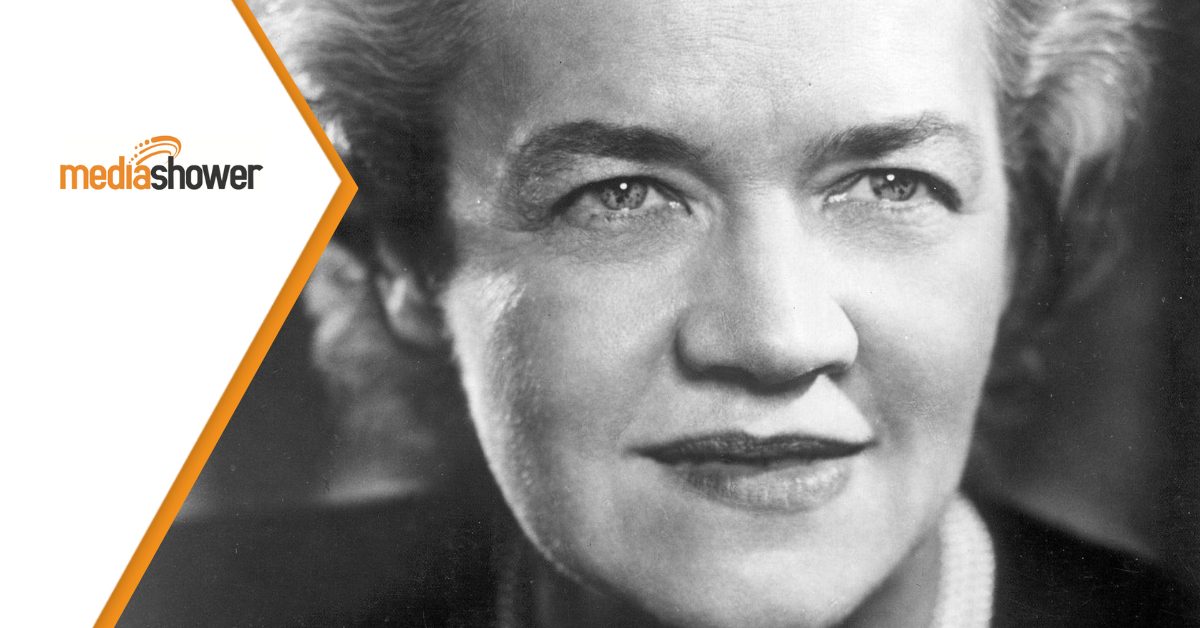
TL;DR: In 1950, Margaret Chase Smith stood up against McCarthyism by seeking common ground with her colleagues on the rights of Americans to speak their minds and hold unpopular views. From her famous “Declaration of Conscience” speech, we can learn the value of honesty and frankness in building trust with our audiences.
So What? We discuss building shared values and community with your audience. Margaret Chase Smith shows us the importance of frank, honest problem-solving and self-assessment in building shared experiences.
At the beginning of 1950, Senator Joseph McCarthy (R-WI) infamously began claiming that he had a list of identified Communists working in the U.S. State Department. These accusations launched one of the darkest periods in American political history after World War II, where innocent people were tried in the court of public opinion and, often, on the floor of the Senate.
While there was an issue of espionage in the U.S. at this time, McCarthy was exploiting a genuine problem to stoke the fears of communism to the point where just being friends with a person who may have attended a Communist meeting was enough to be dragged in front of Congress. In many cases, Americans lost their careers and much more over little more than unproven allegations.
One of them was Margaret Chase Smith, Senator of Maine, who sought to highlight the shared values between her and her colleagues while denouncing oppression. In her speech, “Declaration of Conscience,” Smith spoke against McCarthy and the party leadership while seeking common ground with everyone.
The Shared Value Of The Right To Speak
“I speak as a Republican. I speak as a woman. I speak as a United States Senator. I speak as an American … Freedom of speech is not what it used to be in America. It has been so abused by some that it is not exercised by others.”
With these words, Smith builds the most necessary part of any piece of writing or oratory: shared community and experience. In this particular context, however, Smith speaks directly to one of our most important shared values: the freedom to speak.
More specifically, Smith speaks on the rights of people to speak freely–something that she saw as abused through congressional hearings where the authority of the participants was used to stifle the speech they swore to protect. This point is repeated throughout her speech, most clearly in this section at the beginning:
“Those of us who shout the loudest about Americanism in making character assassinations are all too frequently those who, by our own words and acts, ignore some of the basic principles of Americanism –
The right to criticize.
The right to hold unpopular beliefs.
The right to protest.
The right of independent thought.”
What we can learn from Smith is that sometimes the most effective criticism or evaluation of a point comes from acknowledging our values–even if what comes from upholding those principles isn’t popular with everyone.
More importantly, Smith never names anyone she’s critical of (in this case, both McCarthy and Truman). Instead of naming names and thus taking sides, she clearly states what she views as the problem and doesn’t let her fellow Senators off the hook about it:
Smith is careful not to say that her opponents shouldn’t speak or shouldn’t have fewer rights. Instead, she asks them to consider what the right to speak means, and points out this is a value shared by the entire chamber.
Aligning Values To Align Purpose and Action

Emphasizing shared values, she also constantly includes herself in her criticism. She is, after all, a Senator and a Republican. When communicating, especially in a difficult discussion, being inclusive and accepting that you’re part of the group you’re criticizing makes it clear that you’re holding yourself to the same standard.
Her speech continues in the statement of principles Chase Smith appended to the speech, signed by herself and six other Republicans. Most notably, while it’s critical of colleagues across the political spectrum, they also use the term “we” at all points:
“The exercise of these rights should not cost one single American citizen his reputation or his right to a livelihood nor should he be in danger of losing his reputation or livelihood merely because he happens to know someone who holds unpopular beliefs.”
Smith follows that up by pointing out we all hold at least one unpopular belief:
“Otherwise none of us could call our souls our own. Otherwise thought control would have set in.”
For communicators, the critical lesson here is that Smith isn’t just presenting common ground, she’s also highlighting that everyone stands on it, even if they don’t realize it. She has thought carefully about her audience, both the ones she’s speaking to and those reading the text later.
Smith uses this technique at other points in the speech as well. She says she’s concerned “as an American” about the issues she raises, as well as a Republican and a Senator. This helps the audience realize they’re part of the group she’s asking for support, along with Smith, establishing another common ground. Citizens of a country share values.
Frankness and Problem-Solving
Smith never dismisses that there is a real problem and is critical of Harry Truman’s administration throughout her speech. But she also separates that from the problem she’s concerned about:
“The Democratic administration has greatly lost the confidence of the American people by its complacency to the threat of communism here at home and the leak of vital secrets to Russia through key officials of the Democratic administration. There are enough proven cases to make this point without diluting our criticism with unproven charges.”
This shows the importance of nuance in any communication. Smith acknowledges her colleagues are right to be critical of the Truman administration, a view she shares with them, but she’s also noting that attempting to root out communists where there are none is just as much of a problem.
“As members of the minority party, we do not have the primary authority to formulate the policy of our government. But we are responsible for rendering constructive criticism, clarifying issues, and allaying fears by acting as responsible citizens.”
Shared responsibility creates ethos because it demonstrates that you, as a speaker, are trustworthy enough to admit when you are wrong and look for solutions. In marketing, we may not “admit when we are wrong,” but this shows us the importance of honesty. Listeners and readers will see through obfuscation.
She later bears down on this point:
“As an American, I am shocked at the way Republicans and Democrats alike are playing directly into the Communist design of “confuse, divide, and conquer.” As an American, I don’t want a Democratic administration “whitewash” or “cover-up” any more than I want a Republican smear or witch hunt.”
While these can seem like strong words, they are a fair comparison. Even at the time, it was clear that the Soviet Union was hiding problems from its citizens and harassing anyone who disagreed with its actions. Smith draws on her colleagues being informed about this to make them think about their actions and ask if they align with their beliefs and what they most cherish.
Create Effective Communication By Presenting Real Solutions
In your messaging, it can be helpful to make an unflattering comparison, but like Smith, we should only do so when it’s fair and our audience can connect the dots. And remember, Smith includes herself in her audience; this point comes later in the speech, after she’s underscored she’s a member of the body she’s criticizing and holds herself to the same standards.
Chase Smith took on a difficult task, although she would live to see her courage validated when McCarthy lost favor in 1954. Whether you’re writing an email or giving a speech yourself, the “Declaration of Conscience” offers several vital lessons when communicating:
- Find shared values with your audience and emphasize those values. Chase Smith underscores her values throughout her speech after clearly considering her audience.
- When offering criticism, be constructive and transparent about the problem. Chase Smith clearly delineates what she sees as the problem to her colleagues, and rather than scolding them, she tells them what can be done instead.
- Remember that you share the same values. Chase Smith never sets herself apart from her colleagues. She acknowledges that she must take her advice, highlighting how the values in her speech are shared.
Do you need help to make your communications clearer and ensure that they reach their intended audience? If you need help crafting an authentic message that resonates powerfully with your target audience, Media Shower knows how to help. Marketers, meet your master plan.
